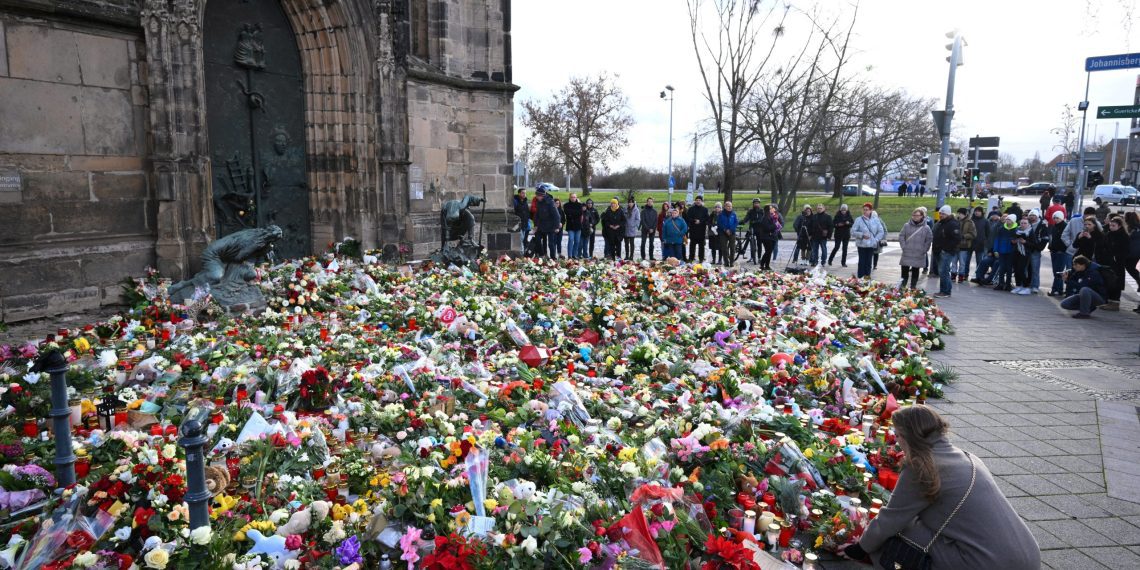The recent Magdeburg market attack has thrust the spotlight on a suspect, Taleb al-Abdulmohsen, and exposed a web of missed warnings, governmental oversight, and cultural paradoxes. Saudi authorities are now working relentlessly to compile intelligence on the suspect and assist in Germany’s ongoing investigation. However, within the walls of Saudi Arabia’s Foreign Ministry in Riyadh, there is a palpable frustration: Germany ignored multiple red flags about al-Abdulmohsen’s extremist tendencies.
Unheeded Warnings and Ignored Red Flags
Between 2016 and 2020, the Saudi government reportedly sent four formal warnings, known as Notes Verbal, to German intelligence agencies and the Foreign Ministry in Berlin. These communications highlighted al-Abdulmohsen’s alleged extremist views and potential threat. Yet, according to Saudi officials, no responses were received.
Part of the lapse may stem from Germany’s decision to grant al-Abdulmohsen asylum in 2016. His case was part of a broader wave of immigration following Chancellor Angela Merkel’s decision to accept over one million Middle Eastern refugees during the Syrian crisis. By this time, al-Abdulmohsen had already spent a decade in Germany.
Born in the Saudi town of Hofuf in 1974, al-Abdulmohsen’s early life remains shrouded in mystery. After leaving Saudi Arabia at age 32, he became an outspoken critic of the kingdom, publicly renouncing Islam and founding a website to assist Saudi women fleeing to Europe.
The Saudis, however, allege that his activities veered into human trafficking, with extensive files purportedly maintained by the kingdom’s Ministry of Interior.
The Magdeburg Incident: A Preventable Tragedy?
The Magdeburg attack has ignited criticism of both German intelligence and local authorities. Al-Abdulmohsen allegedly drove a BMW into a crowded Christmas market, exploiting an unguarded emergency access route. While federal investigators probe his background, questions swirl around why prior warnings were not heeded.
German authorities have defended the market’s layout but remain tight-lipped on their handling of al-Abdulmohsen’s asylum case and the alleged Saudi warnings.
Saudi Arabia’s Mixed Record: Credibility or Convenience?
While Saudi officials have expressed anger at Germany’s inaction, their own track record complicates the narrative. Under Crown Prince Mohammed bin Salman (MBS), Saudi Arabia has undergone a rapid transformation—reopening cinemas, hosting Western artists, and promoting gender equality in public spaces. Yet this progressive façade exists alongside severe crackdowns on political and religious freedoms, where tweets critical of the regime can result in 10-year prison sentences.
This paradox raises questions about the motivations behind Saudi warnings. Were they genuinely concerned about extremism, or were they attempting to rein in a dissident critic?
A Political Tightrope
The Magdeburg incident also underscores Germany’s struggle to balance human rights concerns with international diplomacy. While Saudi Arabia remains a key Western ally, particularly in the energy sector, its poor human rights record—including the persecution of women’s rights activists and the 2018 killing of journalist Jamal Khashoggi—has strained relations.
Still, ignoring credible intelligence warnings from a global partner has left Germany exposed to criticism of complacency, particularly given the escalating risks of terrorism in Europe.
What’s Next?
As Saudi Arabia collaborates with German investigators, questions remain about how future warnings from allies—regardless of their human rights record—will be handled. The Magdeburg tragedy could have been avoided had the warnings been taken seriously. For now, Germany must confront its own failures in protecting public safety while navigating the moral complexities of international intelligence sharing.









